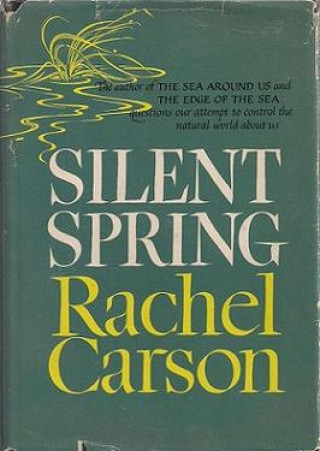“Silent Spring,” a landlubber, is no slouch of a book: it launched the environmental movement; provoked the passage of the Clean Air Act (1963), the Wilderness Act (1964), the National Environmental Policy Act (1969), the Clean Water Act and the Endangered Species Act (both 1972); and led to the establishment of the Environmental Protection Agency, in 1970. The number of books that have done as much good in the world can be counted on the arms of a starfish. Still, all of Carson’s other books and nearly all of her essays concerned the sea. That Carson would be remembered for a book about the danger of back-yard pesticides like DDT would have surprised her in her younger years, when she was a marine biologist at the U.S. Bureau of Fisheries, writing memos about shad and pondering the inquiring snouts of whales, having specialized, during graduate school, in the American eel.
Carson was fiercely proud of “Silent Spring,” but, all the same, it’s heartbreaking to see that a new collection, “Silent Spring and Other Writings on the Environment,” edited by Sandra Steingraber (Library of America), includes not one drop of her writing about the sea. Steingraber complains that, “while Carson’s sea books occasionally allude to environmental threats, they call for no particular action,” and, with that, sets them aside. Political persuasion is a strange measure of the worth of a piece of prose whose force lies in knowledge and wonder. In her first book, “Under the Sea-Wind” (1941), Carson wrote, “To stand at the edge of the sea, to sense the ebb and the flow of the tides, to feel the breath of a mist moving over a great salt marsh, to watch the flight of shore birds that have swept up and down the surf lines of the continents for untold thousands of years, to see the running of the old eels and the young shad to the sea, is to have knowledge of things that are as nearly eternal as any earthly life can be.” She could not have written “Silent Spring” if she hadn’t, for decades, scrambled down rocks, rolled up her pant legs, and waded into tide pools, thinking about how one thing can change another, and how, “over the eons of time, the sea has grown ever more bitter with the salt of the continents.” She loved best to go out at night, with a flashlight, piercing the dread-black dark.
